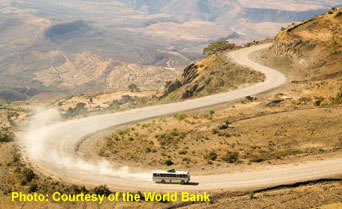Human Challenges

The Biggest Challenge
Building brick and mortar schools is one challenge. Roads that can carry children to school is another challenge. Providing electricity to the schools is yet another challenge. The biggest challenge Ethiopia may face is getting children to come to school. Right now more than 38% of Ethiopians live on less than $1 U.S. a day, almost 80% live on less than $2 a day. Those numbers don’t seem to be changing much [6]. Many parents in rural Ethiopia may find it impossible to do without their children’s labor lest they starve. Some social reform system will have to be put in place to augment the loss of the child laborers income to the family. This is one of many human challenges Ethiopia will need to overcome.

Ethnic and Gender Discrimination
Ethiopians in the main urban areas like Addis Ababa have access to resources that rural Ethiopians do not. Jobs, toilets, running water, telephones, the Internet are mostly found in urban settings. This leaves a vast number of Ethiopians feeling left out.
In addition to this, Ethiopia is ethnically diverse. The Oromos, Amharas, Ogadenis, Tigrays and the Sidamas are just the largest of the varied ethnicities living in Ethiopia. Southern Ethiopia is said to have 45 distinct ethnic groups itself. All are not represented in the government nor are they treated equally by the government [22]. The Ethiopian government urgently needs to rid itself of any ethnic discrimination if it wants to meet the Millennium Development Goals.
Historically Ethiopia was a patriarchal society. A society where men have more value over women, or boys have more value than girls, you’ll see literacy numbers like you do in Ethiopia. There is a reason that 50% of boys are literate while only 38% of girls are literate [6]. In a patriarchal society like Ethiopia, it is more important for the male to get the education while the female labors. This deep rooted belief in Ethiopia will have to change. History tells us that such changes are not voluntary. There will have to be some Ethiopian law passed and enforced that states that “all” school age children must attend primary school for Ethiopia to meet Millennium Development Goal two.
